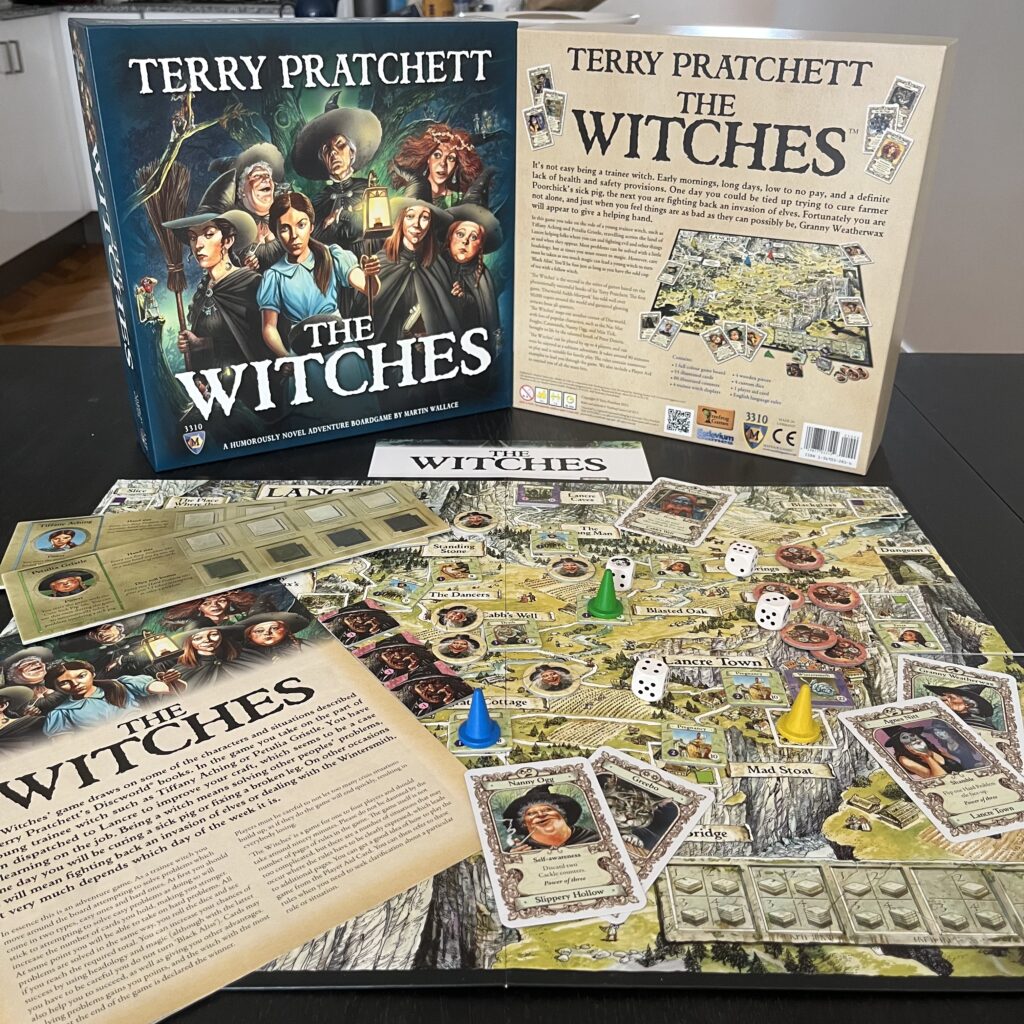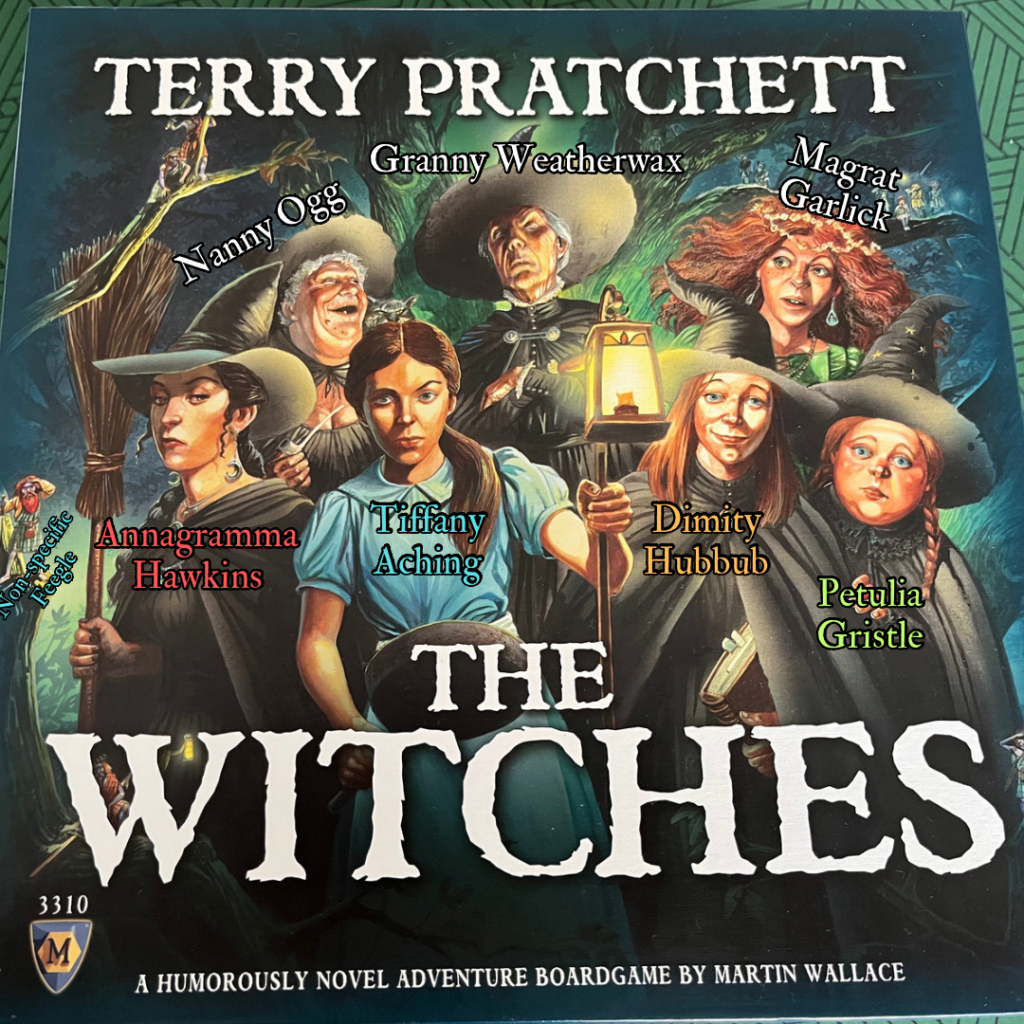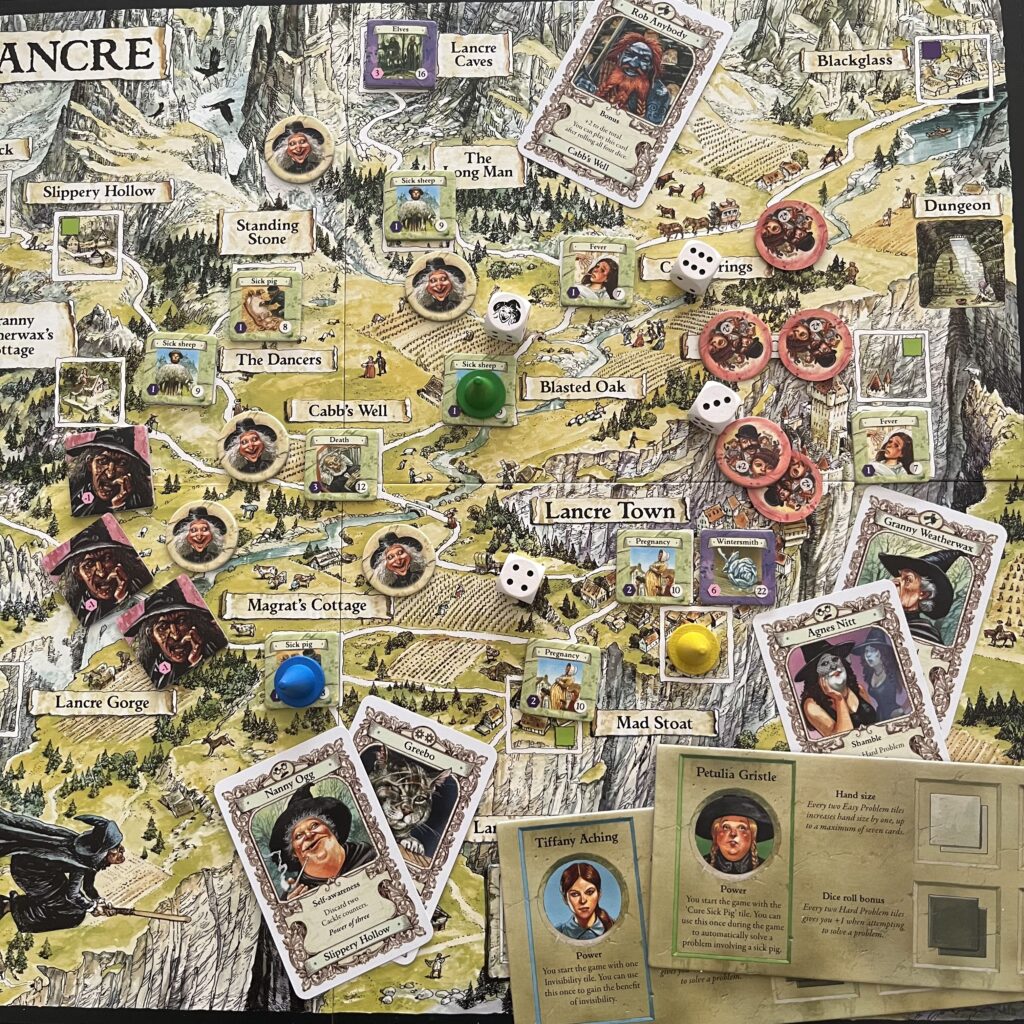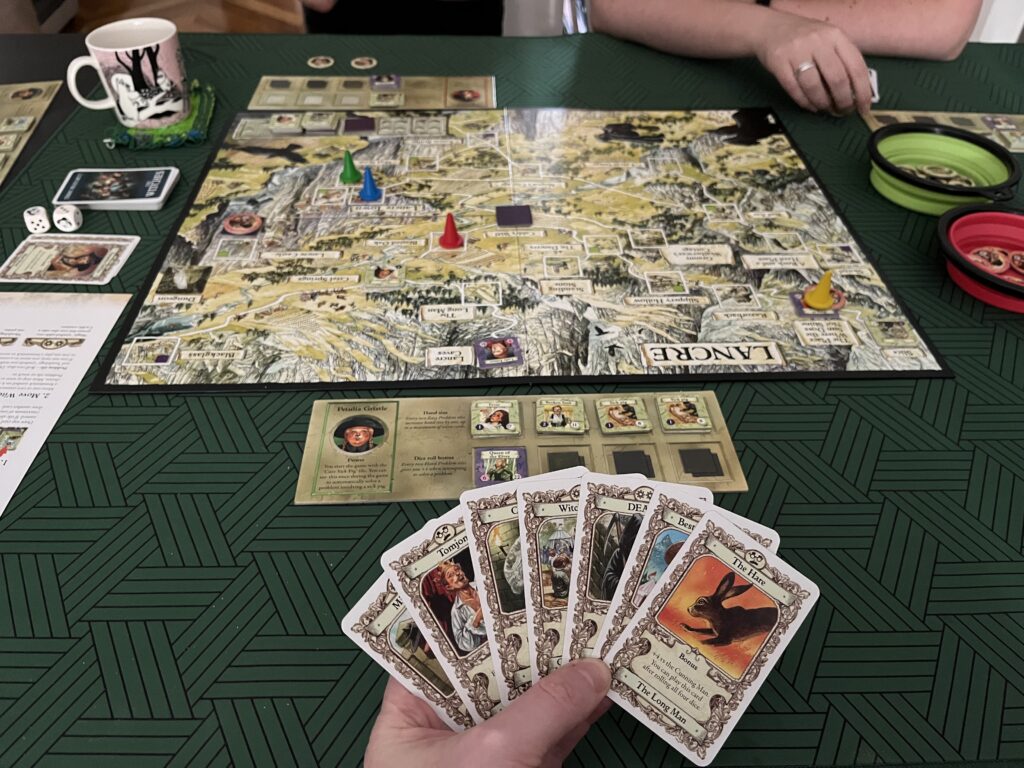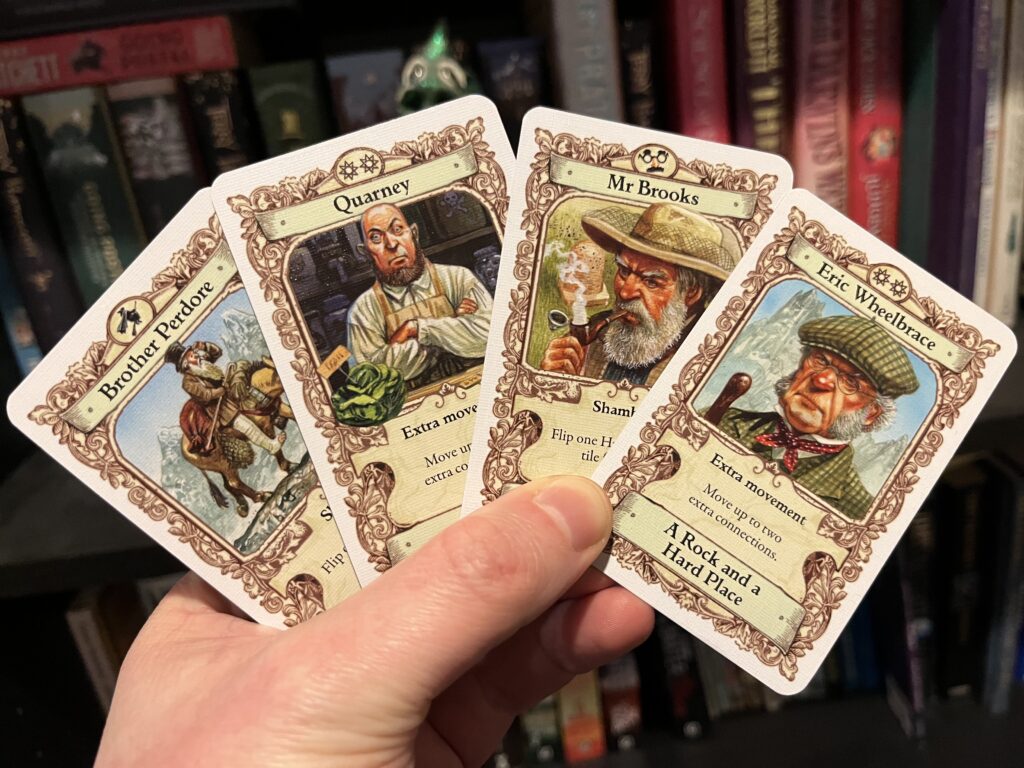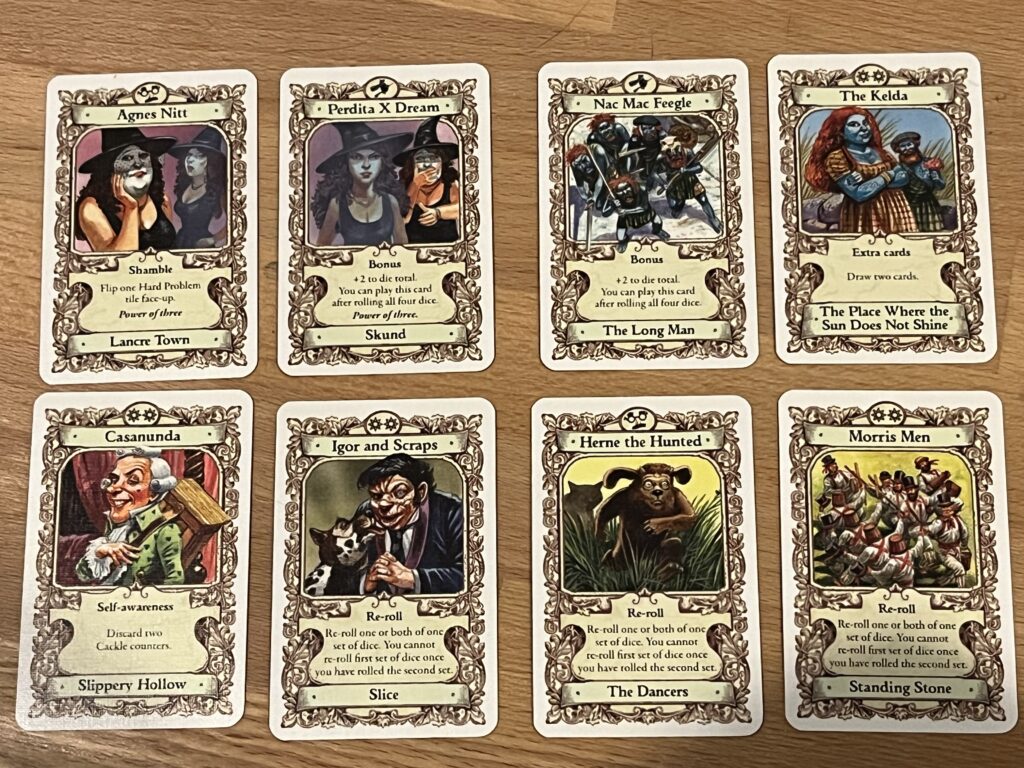#Pratchat17 – Midsummer (Elf) Murders
In our seventeenth episode we join everyone’s favourite dysfunctional coven – and guest, writer Nadia Bailey – as we return to Lancre for Terry Pratchett’s 1992 Discworld novel, Lords and Ladies!
The Lancre coven have returned from their trip abroad, but despite the impending royal wedding of Magrat and King Verence, all is not well in the Ramtops: it’s circle time, when the walls between worlds are thin, and in the witches’ absence someone has been toying with powers beyond their understanding. As usual Granny Weatherwax thinks she can sort everything out herself: facing down a young witch wannabe and keeping the Gentry at bay. But Granny is off her game. Is it the arrival of an old flame? Or is her time as a witch of Lancre nearly up? She’ll need Nanny and Magrat’s help to see off the threat of the Lords and Ladies…
Bringing us back to the witches after only one book away, Lords and Ladies is a particularly Pratchett take on the ancient Celtic stories that inspired modern ideas of fairies and elves. One of the few novels to cross the streams between the witches and wizards, it also gives us more of a glimpse into Esme Weatherwax’s past, hints at the future of witchcraft (and royalty) in Lancre, and introduces the infamous “Trousers of Time”. Is this your favourite witches novel? What do you think of the parallel universes, other dimensions and alternate timelines it describes? And is this the best take on elves since Tolkien? We’d love to hear from you! Use the hashtag #Pratchat17 on social media to join the conversation.
Podcast: Play in new window | Download (Duration: 2:04:15 — 57.3MB)
Guest Nadia Bailey is an author, journalist and critic whose work has appeared in The Australian, The Age, The Lifted Brow and many others. The Book of Barb, an unofficial celebration of the surprisingly popular supporting character from the first season of Netflix “kids on bikes” drama Stranger Things, was her first book; it was followed by The Stranger Things Field Guide in December 2018. In between Nadia wrote The World’s Best BFFs, a book of profiles of celebrity best friends. All three are published by Smith Street Books. You can find Nadia online at nadiabailey.com, and she tweets at @animalorchestra.
You can find full show notes and errata for this episode on our web site.
Don’t forget that you can see Liz and Ben at both Speculate 2019 on March 15 and 16, and at Nullus Anxietas 7, the Australian Discworld Convention, on April 13 and 14! Plus Ben’s new show, You Chose Poorly, plays at the Melbourne International Comedy Festival from April 1-7.
Next month, to tie in with our appearance at Speculate, we’ll be leaving the Discworld and blasting off into outer space as we discuss one of Pratchett’s early sci-fi novels, The Dark Side of the Sun, with writer Will Kostakis! We’ll likely be recording around the time of Speculate 2019, so get your questions in via social media before March 15th using the hashtag #Pratchat18.
Want to help us get to the end of our six(ish) year mission and read every Pratchett book – and more? You can support us with a tip, or a subscription for as little as $2 a month, and that’s cuttin’ our own throats! See our Support Us page for details.

